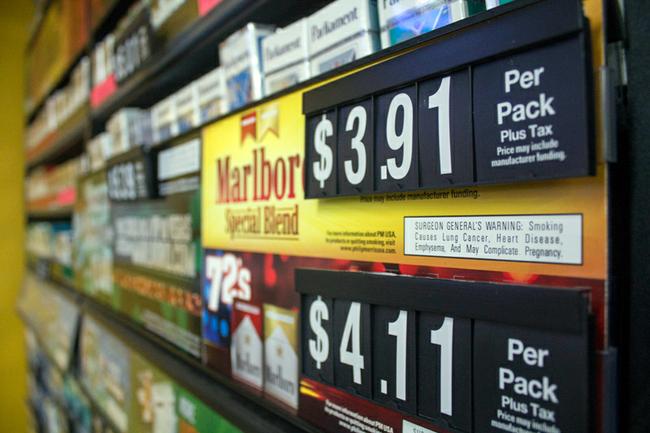
Proposition B, a $0.73 cigarette tax hike that would have increased revenue to Missouri schools and smoking cessation programs, failed by a narrow margin Tuesday.
Missouri voters turned down Prop B by a margin of 51 to 49 percent. Out of more than 2.6 million votes cast, the measure failed by less than 43,000 votes. In Boone County, voters approved Prop B by nearly 60 percent.
If enacted, Prop B would have increased state cigarette taxes to $0.90 per pack. Missouri’s current state cigarette tax is $0.17 per pack, the lowest rate in the nation. According to data from the Campaign for Tobacco Free Kids, the nationwide tax average is $1.49 per pack.
Fifty percent of the tax revenue would have been used to increase funding to Missouri K-12 schools, 30 percent would have supported higher education and 20 percent would have promoted smoking cessation in the state.
According to an MU School of Medicine news release, MU hoped to use funding from Prop B to expand its medical school enrollment from 96 students to 128 students and create a clinical campus in Springfield, Mo. The School of Medicine now plans to turn to public and private funds to continue the projects, spokesman Rich Gleba said.
“We’ve been talking with the public, with legislatures and with elected officials to educate them about the projects and all the benefits it would bring to health education and the economy in Missouri,” he said.
Gleba said Prop B’s failure presented only a small setback to the school’s fundraising efforts. The school had been working for two years to secure funding, and Prop B had only been a funding option during the past six months.
“Now that Prop B isn’t there, we’ll just continue on our original course,” Gleba said. “That funding would have been immediately available if Proposition B had passed, so it will just take us a little longer to get the funding we need.”
The medical school hopes to construct a $30 million medical education building at MU and renovate its Springfield facilities for $3 million. Operating costs for the facilities would be about $10 million per year.
Although the medical school will not receive additional revenue from the tax, MU economics professor Joseph Haslag, who conducted a study of Prop B’s potential impact on state revenue, said keeping cigarette taxes low could actually benefit state tax revenues in the long term.
“There’s very little controversy that the taxes would have been increased and there was going to be a reduction in the number of cigarette packs sold,” Haslag said. “The findings were that with the reduction of cigarette packs sold, Missouri’s state sales tax revenues would decline because cigarette packs are subject to state and local sales taxes.”
Haslag said his study only focused on tax revenues and that it is hard to tell if the higher tax revenues will outweigh the loss of earmarked funding. He speculated if Prop B had passed, legislators would have opted to allocate less funding to education and smoking cessation programs.
“Any time you earmark monies for any particular activity, policymakers have the option to exercise what we call ‘time inconsistent behavior,’” he said. “In other words, when (legislators) actually see the revenues that are coming in from one source, they may alter their behavior in other ways.”